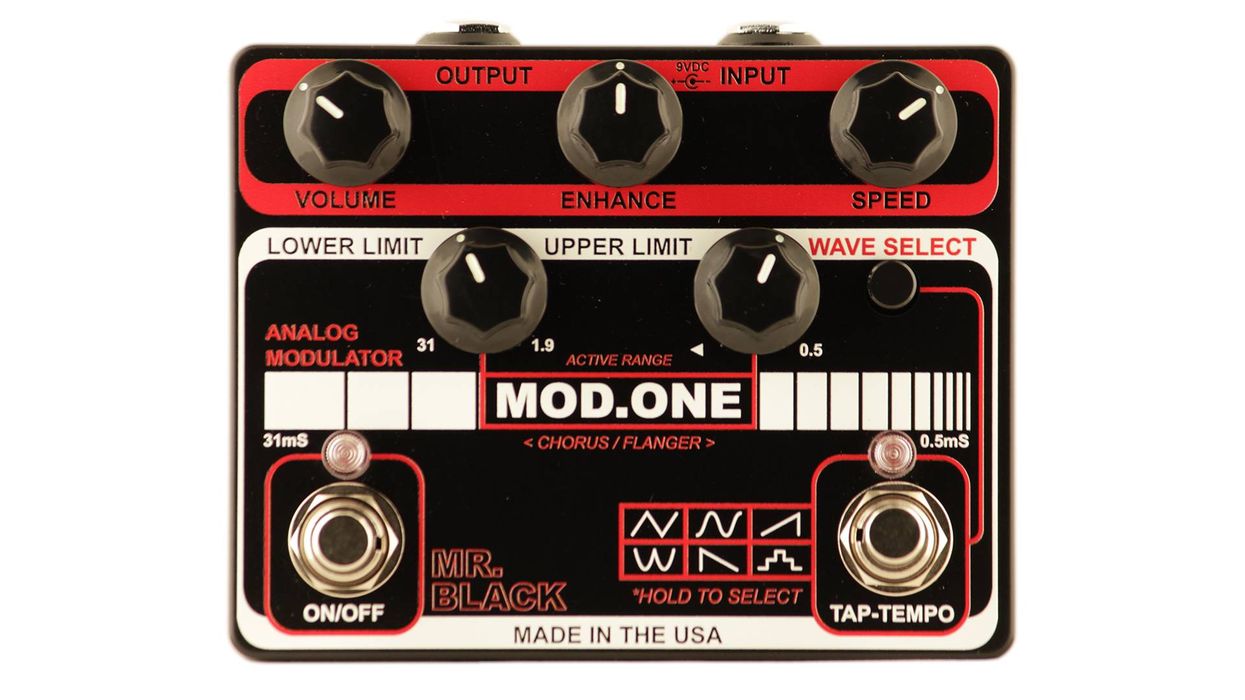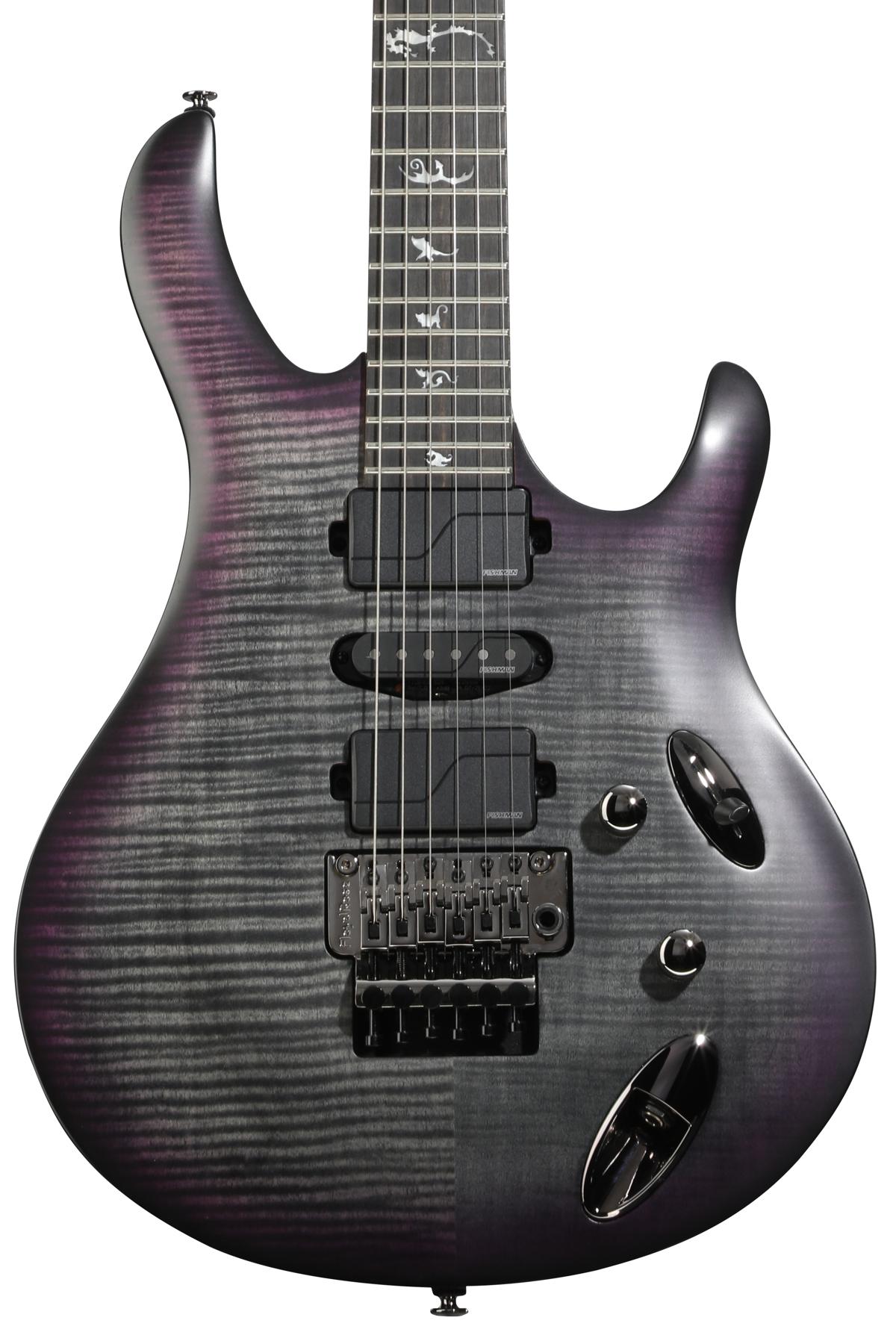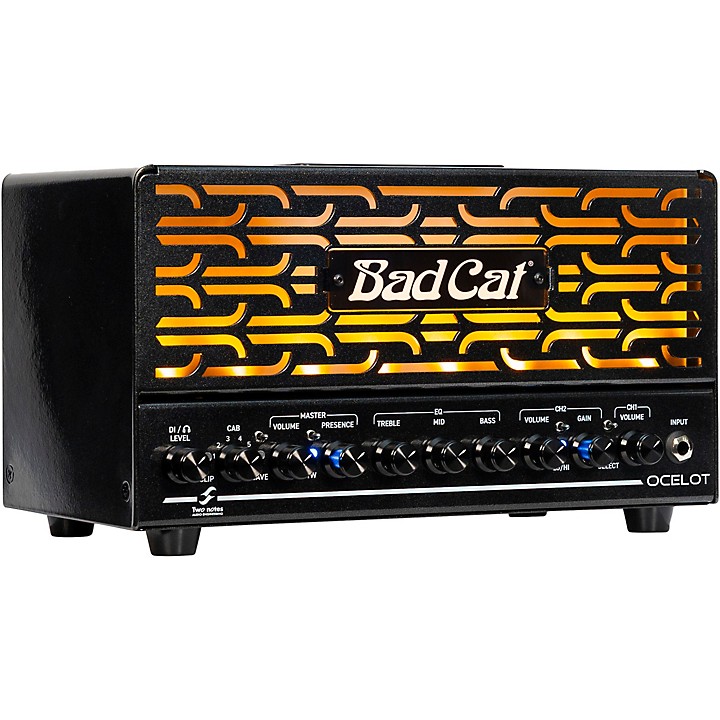If BYOC’s Crown Jewel was a straightforward stompbox, this review would be simple and favorable. It’s a fine-sounding overdrive with ingenious extras that provide uncommon range and flexibility. Thumbs up, BYOC!
But Crown Jewel is far from a straightforward stompbox.
A Bevy of Boosters
Besides being an overdrive, Crown Jewel houses an independent boost stage. Drive and boost have their own footswitches, so they can be used together or separately. Here’s the twist: The boost section is assembled on a small circuit board that can snap free from the main overdrive board, permitting booster swaps. Changing booster modules radically alters Crown Jewel’s drive-plus-boost character—and BYOC offers 11 different boosters derived from such classic circuits as Screamer, Centaur, and LPB-1. It’s a clever system that works splendidly (though you must unscrew the enclosure’s rear panel to change modules).
One booster of your choice is included at the $219 base price—just pick your fave and plug it in. Additional modules sell for $9.99 each (though the Mimosa module, an Orange Squeezer compressor clone, costs $19.99, and the germanium-transistor Treble Booster module is $29.99).
A Clone of One’s Own
BYOC (for Build Your Own Clone) is the leading manufacturer of DIY stompbox kits. They also sell preassembled versions of their kits. We reviewed the preassembled Crown Jewel kit along with all 11 modules, also preassembled. Preassembled versions of Crown Jewel and all 11 modules will set you back $483. Meanwhile, BYOC kits cost about half the price of preassembled products.
Whether to DIY is a personal call, but after assembling many BYOC kits over the years, I can vouch that their projects are uniformly excellent—particularly their comprehensive build instructions. The Crown Jewel overdrive kit is probably too complex for beginners, but any of the modules would be a perfect starter project. And for more advanced builders, BYOC sells the $6.99 Experimenter—an unpopulated booster board for creating your own pop-in circuits.
Drive On
First let’s focus on the drive section. The core sound is a warm, IC-based overdrive in the Screamer/Centaur vein, but with far more tonal range. The extraordinary tone-shaping features include nine possible clipping diode configurations. An onboard charge pump lets you run the pedal at 18 volts for greater clean headroom via a standard 9V power supply. (The power supply is not included, and there’s no battery option).
The drive’s killer feature is its 4-band EQ section (bass, mids, treble, presence). The all-important mids control is parametric: You can set the emphasis frequency and choose from three preset bandwidths. Between this flexible tone stack and the diode options, you can mimic most IC-based overdrives, from Maxon to MXR to Klon. This drive circuit is ingenious. Its layout is easy to understand despite its many options. The build is excellent, and the clickless relay footswitches are a classy touch.
Module Behavior
The boost modules—straightforward clones of familiar circuits—sound and behave as expected. Some simpler modules, like the LPB-1, include the complete circuitry of the original pedals. Others, like the Klon and Screamer clones, use only the drive section, minus buffers and tone controls. (Which is fine. Crown Jewel’s tone controls are superior.)
Ratings
Pros:
Countless great overdrive tones. Ultra-flexible tone controls. Customizable configuration. Excellent build quality. DIY kit options. Great prices.
Cons:
None.
Tones:
Ease of Use:
Build/Design:
Value:
Street:
$219 ($483 as reviewed with all 11 preassembled boost modules)
BYOC Crown Jewel
buildyourownclone.com
The 11 BYOC boost modules are, in alphabetical order:
• 18V JFET (similar to the Keeley Katana)
• Electra (a single-transistor circuit used in many boutique distortion pedals)
• Fuzz (a silicon-transistor Fuzz Face clone)
• Hard Clipper (the drive section of a Klon Centaur)
• LPB (Electro-Harmonix’s LPB-1 booster)
• Mimosa (a Dan Armstrong Orange Squeezer compressor clone)
• MOSFET (similar to ZVEX Super Hard On)
• Octave Up (a Dan Armstrong Green Ringer clone)
• Soft Clipper (a Tube Screamer-style drive section)
• Treble Booster (a Rangemaster clone)
• 27V (a high-output clean boost)
I compiled recordings of all 11 modules, heard first alone, and then in tandem with the drive section. I used the same drive settings for all combined examples: knobs at noon, silicon clipping diodes, standard 9V operation, and boost module before drive. (Yes, you can toggle the signal path from booster/drive to drive/booster.) Using a ReAmp, I fed the same performance through each of the boosters.
My constant drive setting may not be optimal for every booster, so bear in mind that you always have vast tone-shaping options on the drive side. However, the only control for the booster modules is a volume knob, though some of the boards include trimpots for fine-tuning their response.
The Verdict
Despite heading a company with the word “clone” in its name, designer Keith Vonderhulls has a long history of innovative circuit design. His kits often expand on the originals, incorporating popular mods and cool new twists. Crown Jewel feels like the culmination of all that study and experimentation.
Whether you plan to install your favorite booster and never reopen the enclosure or leave the back panel off and swap booster boards between studio takes, you’re guaranteed a large collection of cool and usable sounds. The preassembled pedal is solidly made. But players contemplating the DIY path won’t find a better gateway drug than these module kits. Crown Jewel is an ambitious and imaginative product that performs perfectly. It wins our Premier Gear award in a walk.













![Rig Rundown: Russian Circles’ Mike Sullivan [2025]](https://www.premierguitar.com/media-library/youtube.jpg?id=62303631&width=1245&height=700&quality=70&coordinates=0%2C0%2C0%2C0)







